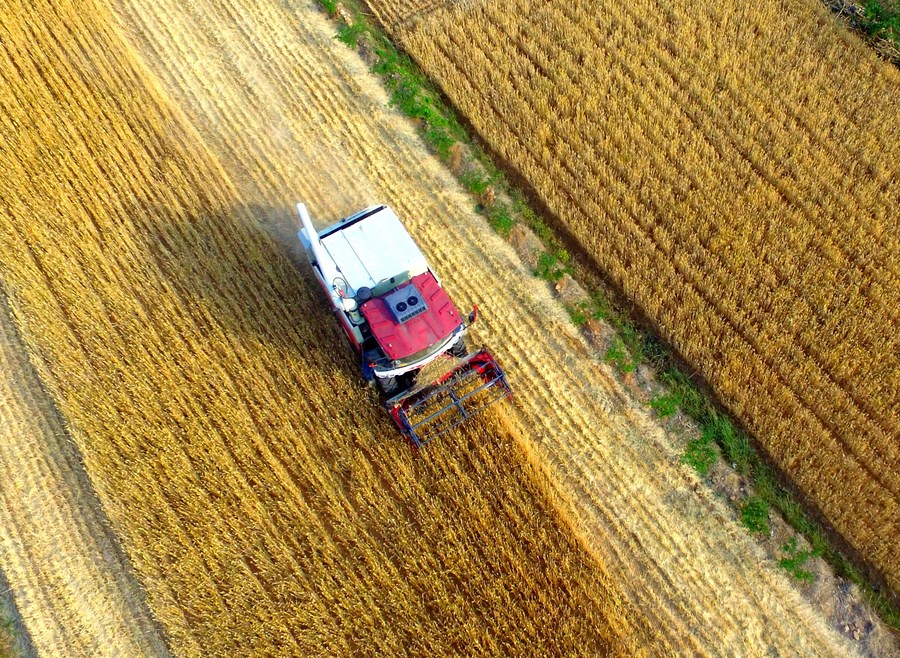China's rural vitalization breathes new life into agriculture, villages
 0 Comment(s)
0 Comment(s) Print
Print E-mail Xinhua, June 28, 2022
E-mail Xinhua, June 28, 2022

China has always put agriculture and rural areas high on the agenda of its economic work. Rural vitalization, proposed in 2017 as a key move to develop a modernized economy, has breathed new life into China's agriculture and villages.
Food security ensured
The stable supply of grains and major farm produce has consolidated national food security, said Deng Xiaogang, vice minister of agricultural and rural affairs, at a press briefing on Monday.
Chinese people have firmly held their "rice bowls" in their own hands based on sufficient domestic food production, said Deng.
China's per capita share of grain reached 483 kg in 2021, higher than the internationally recognized security line of 400 kg, Deng said.
The grain output hit a historic high of 682.85 billion kg in 2021, exceeding 650 billion kg for seven consecutive years, said Deng, adding that the country has achieved basic self-sufficiency in grain supply and absolute security in staple food.
Deng attributed the country's increasing grain production capacity to stable farmland areas and improved agriculture technologies and equipment.
China has ensured its farmland area remains above the redline of 1.8 billion mu (about 120 million hectares) and accumulatively fostered a total of 900 million mu of high-standard farmland, said Deng.
China's integrated mechanization rate of agricultural production has surpassed 72 percent. The integrated mechanization rate for wheat hit 97 percent, added Deng.
Rural people's well-being improved
China has made historic achievements in eliminating absolute poverty and improving the well-being of rural residents amid the push for rural vitalization.
Some 98.99 million impoverished rural residents living under the current poverty line were lifted out of poverty. A total of 832 impoverished counties and 128,000 impoverished villages were also removed from the poverty list, showed official data.
The per capita disposable income of rural residents more than doubled to 18,931 yuan (about 2,832 U.S. dollars) in 2021 from the 2012 level.
The improvement of the rural living environment is a massive task in implementing the rural vitalization strategy, said Hong Tianyun, deputy head of the National Rural Revitalization Administration.
More than 40 million rural household toilets had been refurbished, and the rural life sewage treatment rate reached around 28 percent since China launched a three-year rural living environment upgrade campaign in 2018.
By the end of 2021, the coverage rate of sanitary toilets was over 70 percent in China's rural areas, Hong said.
In the next step, China will improve infrastructure in the agricultural sector and rural areas to advance their modernization and consolidate and expand poverty alleviation achievements with rural vitalization endeavors, Hong said.






Go to Forum >>0 Comment(s)